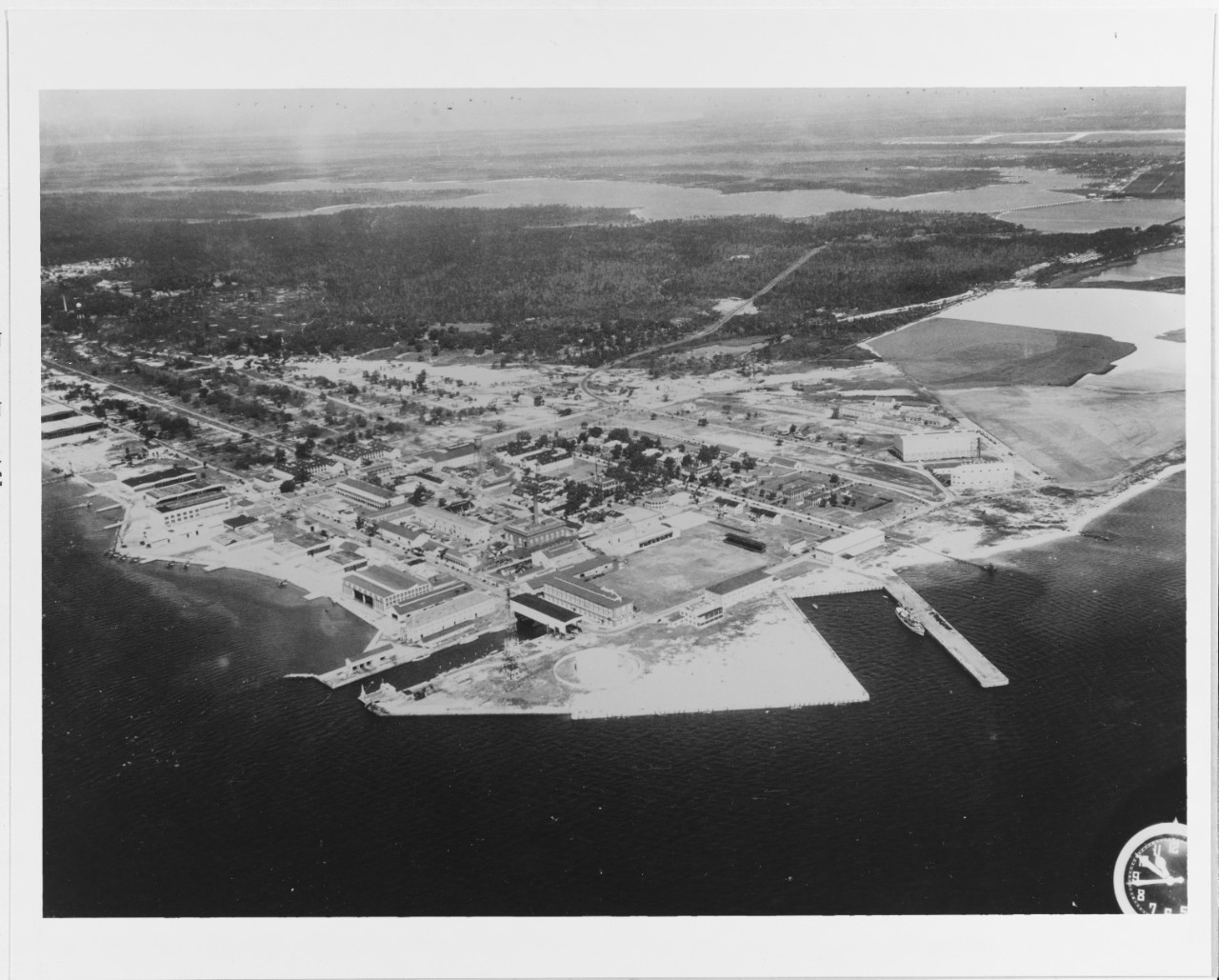
NAS Pensacola is dedicated to providing the highest level of base operating support and quality of life services for all shore activities aboard NAS Pensacola, Corry Station,Saufley Field, and Bronson Field. Known as the "Cradle of Naval Aviation", Naval Air Station Pensacola serves as the launching point for the flight training of every Naval Aviator, Naval Flight Officer (NFO), and enlisted aircrewman. In addition, approximately 23,000 aviation personnel in aeronautical technical phases of naval operations are trained here.
NAS Pensacola provides base and operational support functions such as quality of life, administration, logistics, facilities, comptroller, management administration and operations (airfield, port, security, fire and search and rescue).
In addition to providing host command support, such as bachelor quarters, commissary and exchanges, the air station provides specialized support through Air Operations, Supply and Management Information Systems (MIS) Departments.
The Air Operations Department provides a wide variety of support for aviators during their training, including Radar, Air Traffic Control, and Crash and Fire Crews located at Sherman Field and out-lying field (OLF) Choctaw. Primary support is provided for Training Air Wing (TraWing) SIX students based at NAS Pensacola, but TraWing FIVE at NAS Whiting Field also uses the facilities daily for primary, intermediate and advanced syllabus training. Additionally, Air Operations supports aircraft from all training squadrons who fly into Sherman Field on cross-country training flights.
Air Operations also provides primary and secondary Search and Rescue (SAR) for TraWings FIVE and SIX. SAR is on 15-minute alert status while training aircraft are airborne and one-hour standby at all other times. In addition to the primary mission of providing SAR assets for the training command, NAS Pensacola's H-3 helicopters serve as an important training platform for Enlisted Aircrew Rescue swimmers.
The Supply Department provides many support services for commands in the geographic region. Food Service Division provides over 15,000 nutritious meals daily to enlisted personnel and officer candidates at NAS Pensacola. Personal Property Division coordinates all movement of military and DoD civilian household goods in the geographic region. Aviation Support Division provides the initial and replacement flight gear issue for all aviation students and their instructors. Fuel and LOX Division provide services to TraWing SIX and transient aircraft as well as visiting ships. Material Division services include: receipt, stowage, and issue of government material, HAZMART, SERVMART, and shipping of material. Customer Service and Purchasing Division provide ordering and contracting support for NAS departments and area tenant commands.
NAS Pensacola's Management Information Systems (MIS) Department provides automated data processing support and information systems for NAS Pensacola and the tenant commands. Support to TraWing SIX includes the Chief of Naval Air Training Standard Training Activity Support System Flight (STASS-FLIGHT) used to track students during flight training. Computer aided schedules, daily flight schedules, and flight hours for personnel and aircraft are incorporated by STASS-FLIGHT. MIS maintains an e-mail system for base-wide communication and a connection to worldwide e-mail, providing a direct link to the information highway.
NAS Pensacola directly supports the training of student aviators from Officer Candidate School, initial flight gear issue, and survival training, all the way to the coveted "Wings of Gold."